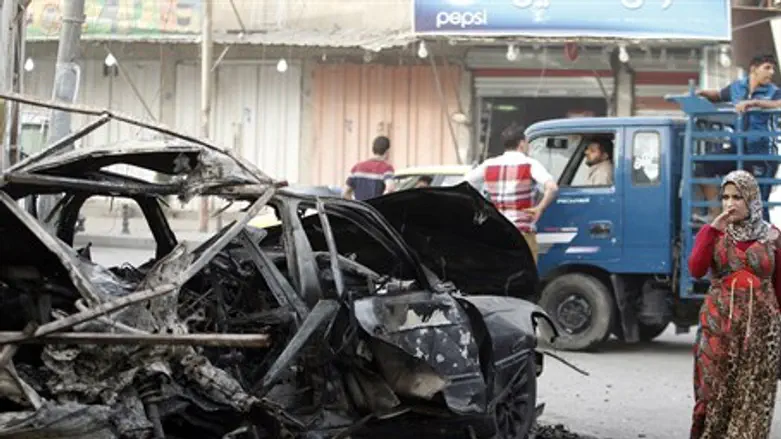
At least 28 people have been killed in a string of attacks by suspected Al Qaeda terrorists in Iraq's western Anbar province Tuesday night.
25 of those killed are believed to be police, and the remaining three unarmed civilians.
Four of the attacks - all of which took place between 10pm and 12am according to Al Arabiya - were in or around the town of Rutba, around 110 kilometers (68 miles) from the Syrian border.
Those attacks included two suicide bombings targeting police checkpoints - one to the east of Rutba in which a suicide bomber detonated a tanker truck packed with explosives, and another to the west, also involving a suicide car-bombing.
Another explosives-filled truck was used to destroy a bridge in the same area.
In addition to the bombings, gunmen launched coordinated assaults on police headquarters and checkpoints in the area.
According to UN estimates, 5,740 people had been killed by violence in Iraq as of the end of September - including 979 people in that month alone.
So far, October has been little better, with around 520 people killed as a violent campaign by a resurgent Al Qaeda continues, mainly targeting Iraqi authorities and Shia Muslims.
The past few months have seen an upsurge in terrorism, with the recent wave of bloodshed triggered after authorities in April forcibly cleared a protest tent-village erected by Sunni Muslims, who were demonstrating against what they see as the marginalization of their community by the Shia-led government.
For decades under the rule of Saddam Hussein, Iraq's Shia majority was itself marginalized, with political opposition violently suppressed. The realignment of the political landscape has fueled resentment by the Sunni community, which as been further exacerbated by instances of heavy-handedness and sectarian politics by the government.
But Al Qaeda in Iraq - which recently merged with affiliates in Syria to become the Islamic State of Iraq and al-Sham (ISIS) - has also drawn strength from instability in neighboring Syria, and the accompanying flow of foreign and local extremists to nearby battlefields, across a porous and sparsely-manned border.
Recent counterterrorism operations by the Iraqi authorities have nabbed hundreds of Al Qaeda suspects, but appear to have done little more than inflame tensions with Sunni Muslims, who say the campaign of arrests is nothing more than an attack on their entire community.